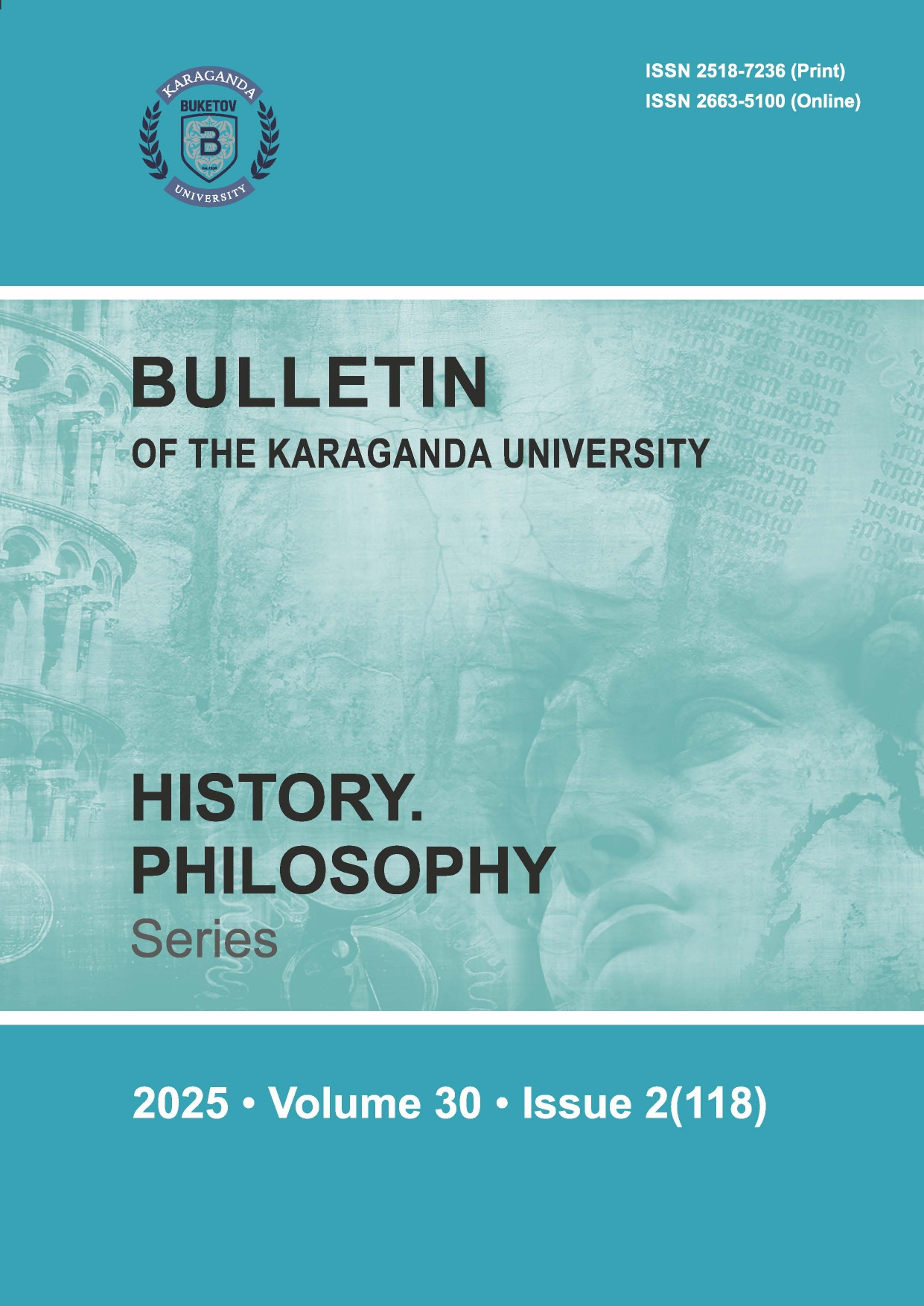Love and Essence: A Comparative Analysis of the Ideas of Plato and Abai
DOI:
https://doi.org/10.31489/2025hph2/273-284Keywords:
Plato, Abai, love, being, existence, Sufism, gashk, magrifat, philosophy, spiritualityAbstract
This article explores the philosophical continuity and differences between Plato’s concept of love and Abai’sconcept of love. Despite most researchers being familiar with love in Turkic Islamic thought, few recognizethe continuity between Plato’s concept of love and Abai. Plato emphasizes that love reveals the cause of Be-ing, affirming its truth and primacy. This aligns with the essence of Sufi love in Abai’s philosophy, wherelove for God is the foundation of all existence. Abai sees love as a realistic concept: each person shapes theirown essence, while a general concept of essence defines the existence of all beings. In contrast, Plato viewslove as a singular conceptual term striving toward Abstract Beauty. Thus, we highlight not only the continuitybut also key differences between Plato and Abai’s interpretations, reflected in the ontological stance of theformer and the existential stance of the latter. It was concluded that for Abai, love characterize a personal ex-perience requiring individual engagement, whereas for Plato, love is the meaning of existence. The researchalso reveals Abai’s understanding of God’s Being through love for humanity, offering a new interpretation oflove in his philosophy.




